Some of the houses are still there, some were destroyed and some never existed in the first place
On what we all deserve
A week ago, my parents and I walked through my mother’s childhood home in Doland, South Dakota. The house has seen better days, but it’s still standing, which means that it can still be filled by story and memory. I saw an empty space where a phone once hung in the dining room, the phone that my dad called my mom up for her first date. I learned where my late Uncle Ken kept his baseball card collection and where my Aunt Kay and Sally kept their dolls and which window my mom opened so that the whole town could hear the bleats of her valve trombone. I saw the clothesline in the yard and the heavy cellar door to the basement. I traced my mom’s steps to her dad’s long-gone service station on Main Street and listened to her say “oh my goodness!” each time she walked into a new room.
I have written a fair bit about my mom’s old house, which previous to the Gelstons was home to the Humphreys— most notably Hubert, Doland’s proudest son. The vast majority of those words have never been published, as I have been largely unsuccessful at making the case to those outside my family that the story of Doland, South Dakota offers a deep lesson for all of us rather than mere filial nostalgia. I’ll keep writing those words, but I also know that it doesn’t actually matter if I convince the world that the little mail order house in Doland offers a skeleton key to understanding race, class and the transformation of 20th Century America. That house and that town is already sacred for my family, and that’s more than enough. There’s no need to self-mythologize. A story matters if it matters to you.
The week I returned from Doland, two different men were killed by their state governments. A hurricane raged through the South, one of those storms that we’re told are getting worse these days, but that we shrug off addressing in any meaningful way. Thousands of miles away, Israel attacked Lebanon— first with bombs, then with troops. Nearly a year ago there was an attack on Israel, one rightfully mourned. Ever since then, the bombs haven’t stopped. The assaults haven’t stopped. The mourning hasn’t stopped. For the past year, most of the deaths were Palestinian. Now the Lebanese death toll is rising as well. As for the bombs, many more than I’d like to admit are American.
This past week, I thought a lot about how objects in motion stay in motion. Once you believe that somebody should die so that you can be safe, you can never stop killing. Once you believe that you can cocoon yourself from other people’s tragedies, you can never stop looking away. Once you believe that our capacity for love and grace is finite, well, you’ve made a whole host of decisions.
This past week, I thought a lot about how rare it is that my mom got to go home again. We didn’t visit my dad’s house outside Doland. It’s long been reduced to rubble, on account of there being more money to be made from big farms than small farms. But it’s more than that. You know this, of course. The only reason a place like Doland, South Dakota was founded in the first place is that the United States government cleared out the Dakota and the Lakota with the triple threats of cavalry, homesteaders and railroad tracks. Why did I get to hear my mom say “oh my goodness?” and stand in rooms she once played in as a little girl? Because some of our stories are valued more than others. Because some of our lives are valued more than others. We know we’re supposed to repeat these truths. We know that we are to, um, you know… acknowledge them. But that’s usually all we do.
This past week, I thought a lot about how many people’s homes don’t exist anymore.
My mom has a hundred stories about Doland. She has stories about legendarily stern teachers and which houses gave the best trick-or-treat candy. She has stories about freezing her tongue to the metal railing outside the school. She has stories about how her dad and the other guys in town used to play cards and drink Tom and Jerry’s at the blacksmith shop every New Year’s Eve and how one year, over her mother’s protestations, she convinced her dad to take her with her.
So many of my mother’s childhood stories are happy ones, a fact that seems inextricably linked to my own largely halcyon upbringing. Not only does her house still exist, but she wanted to return to it. Her life hasn’t been without tragedy, but she was both loved deeply and afforded a certain number of opportunities that we pretend are available to all even though we know that’s a lie. Her cup was filled, which in turn allowed her to do the same for myself and my siblings.
It’s hard to talk about all this without using the word privilege.
What a word, privilege. It has moved, in the last few years, from a pop-sociological description of unseen power dynamics to a culture war third rail. A few minutes before I went back to my mom’s house, I had a lovely conversation with a Doland old-timer who told me how much he couldn’t stand people telling him he had “White privilege.” I’ve got a lot of thoughts on that debate, about the gifts and limits of language in our efforts to metabolize the unmetabolizable. We fight so many proxy wars, don’t we? We overemphasize the precise terms we use or don’t use, and underemphasize what we ask each other to do about it.
What I’ll say now, though, is that I don’t know a better term for the way in which my story, my family tree and my walk through the world is afforded this particular degree of dignity and grace than that much contested term. I don’t carry as much guilt and shame about it these days. The issue with privilege isn’t that few people have it, it’s in who doesn’t. It’s the fact that it isn’t a right, that it isn’t universal. As is so often the case, it’s a problem of imagination. We pretend as if the good life for some will always necessitate suffering for others, but there’s actually no rule that it has to work that way. There has always been enough.
One thing I hate about the way we talk about politics is the twisted logic that to care about one set of human beings is to not care about a different set of human beings.
Sure, we live in a world that desperately deserves repentance and repair, where dignity for all will not come without a rejiggering of hierarchies and resources. That doesn’t mean, though, that we don’t all deserve love, support and a life worth living.
That’s why, when I learn that I have harmed somebody, it doesn’t feel like an affront, it feels like an opportunity to make amends.
That’s why, when I am asked “what should happen to the person who votes differently than you?” I say that I hope that they receive free healthcare and can afford a decent home and that, if they have children, those kids are loved and protected and get to go to a beautiful public school.
That’s why, when I’m told that it is naive to believe in pacifism or a world without prisons and I get hit with a gotcha like “well what if you were murdered?” I say “why would I wish for vengeance if that would mean that my murderer might never have the opportunity to make things right?”
What I’m saying is an object in motion stays in motion. And that goes both ways. Towards cruelty or towards benevolence.
If all of us are deserving of a life of dignity and beauty, then we have an unlimited set of choices— big and small— to build that reality.
Power needs to be disrupted, yes. Resources need to be spread rather than hoarded. But that’s not actually a story of winners and losers.
We are all storytellers. We tell stories about the places and people that have filled our hearts. We tell stories about what has made our walk through life special and meaningful. We tell stories about pain and hurt and the wounds that still smart.
We tell these stories, I think, to prove to one another that we are human, that we wish to have that humanity seen and valued and reflected back to us.
Those stories are proof enough for me. Of our humanity and our divinity. Of what exquisite messes we are. Of what we are capable of giving each other and what we are owed.
We all deserve a place that we love.
We all deserve to have that place be safe.
We all deserve to go home again.
End notes:
This week I will be donating to mutual aid efforts in regions hit by Hurricane Helene and calling Congress to stop arming Israel. For reasons I hope are clear from this piece, I invite you to join me.
We had our first fall Barnraisers course last week and it was a real treat. There are five standalone sessions still ahead of us, and registration is open for all of them. Free! (though donations accepted). Fun! (I think). No organizing experience required (for real!). More details here, and registration here.
If you would like to read more of my (perhaps beautiful, perhaps clumsy) attempt to tell the story of myself and the towns that made me, you should check out my book, The Right Kind of White.
ALSO! I will be talking about that book (and the broader task of building communities we all deserve) in WASHINGTON DC. on October 17th. Check this line-up out and RSVP here.
Details coming very soon for another D.C. event, at the Friends Meeting of Washington on October 20th!
Ok, I think that’s all the housekeeping I have for now. To return to the major theme of the essay, here is the song I listened to on repeat on the drive back from Doland. You can listen to it, and all the White Pages Songs of the Week, on both Apple Music and Spotify
“So clean the house, clear the drawers, mop the floors, stand tall
Like no one's ever been here before or at all
And don't you mention all the inches that are scraped on the doorframe
We all know you tiptoed up to 4'1" back in '08”

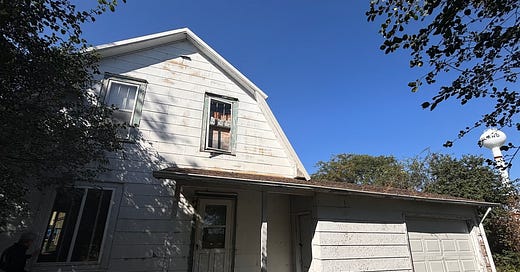



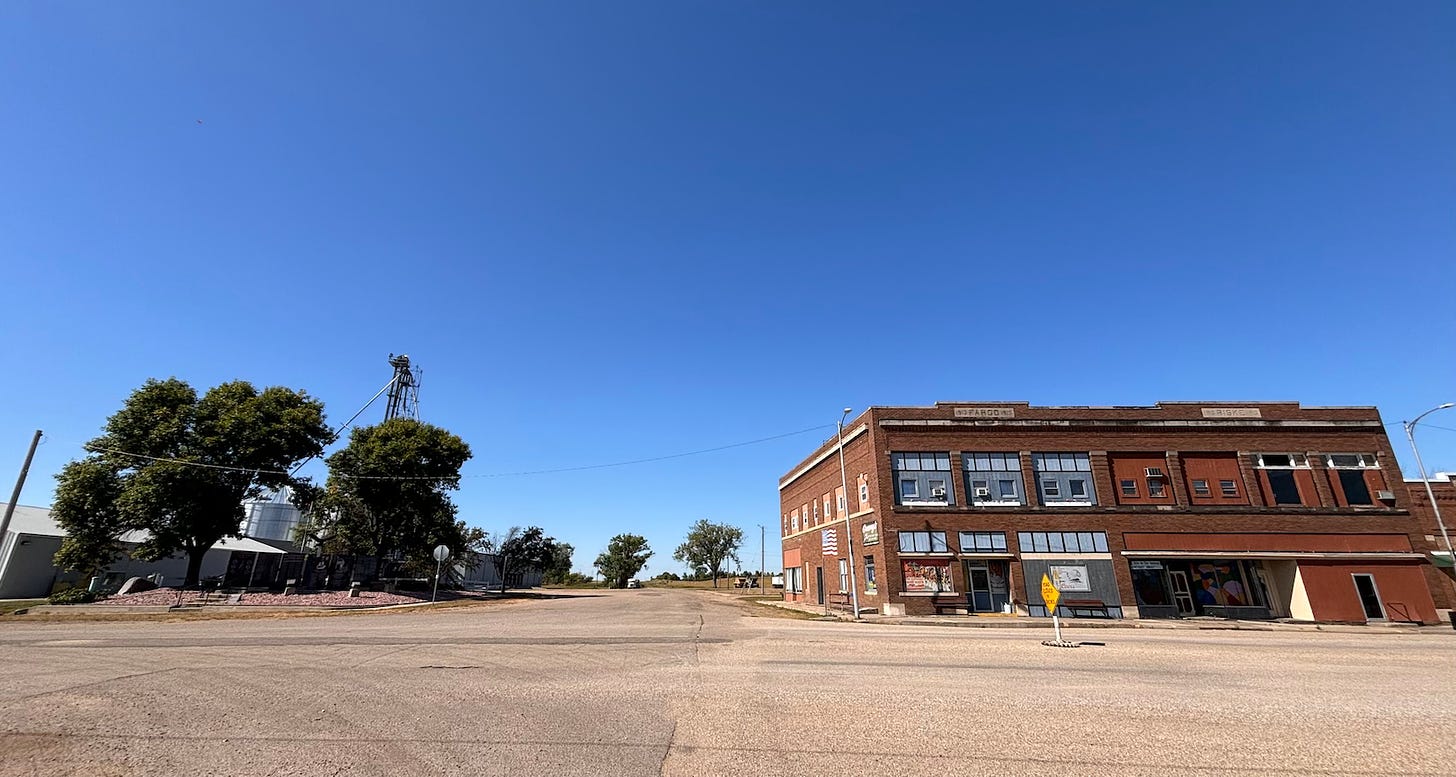
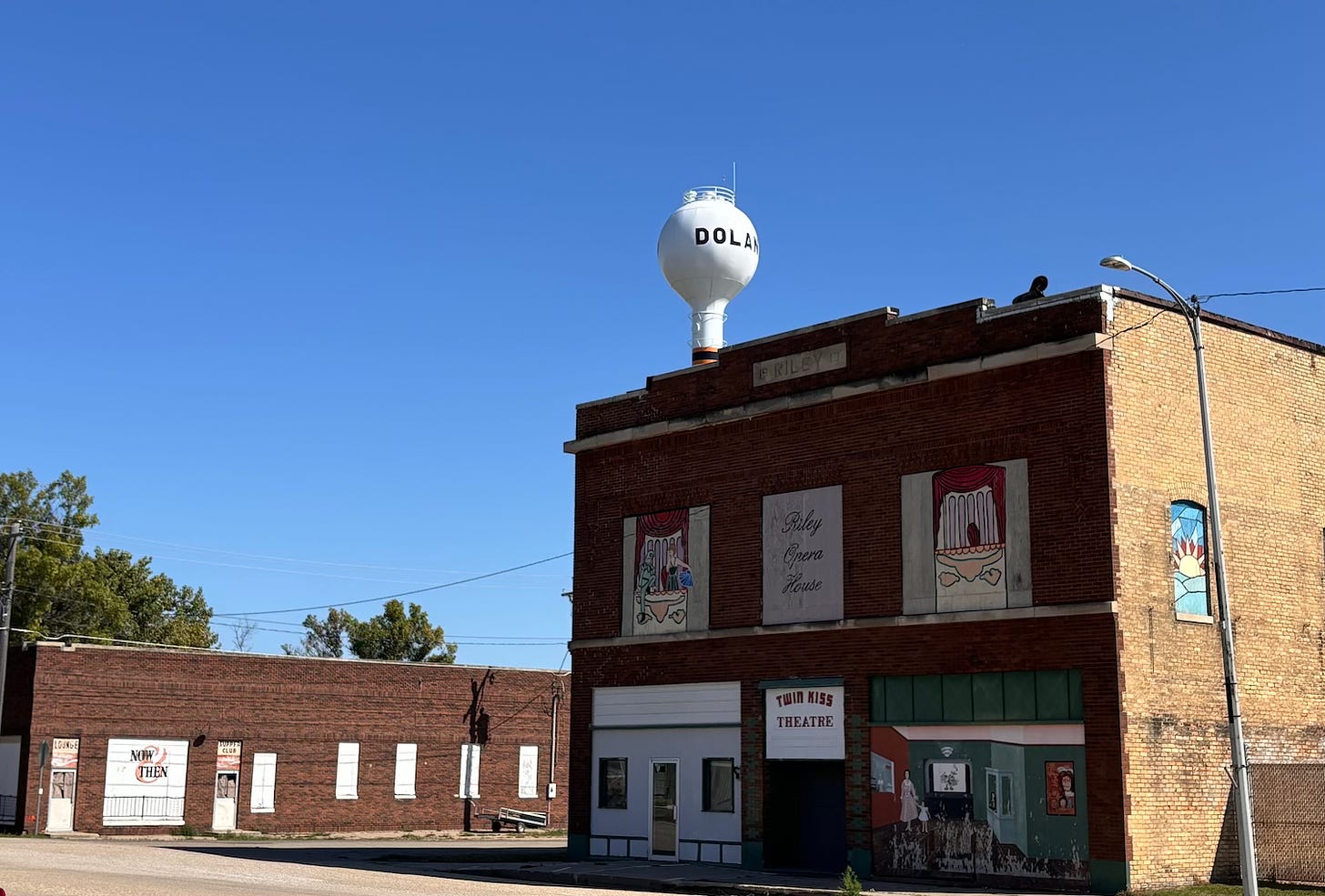
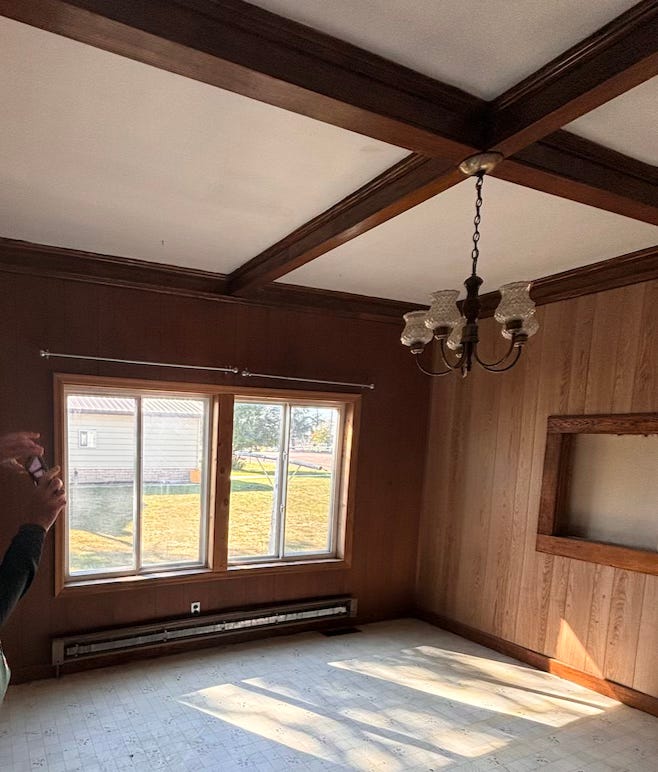
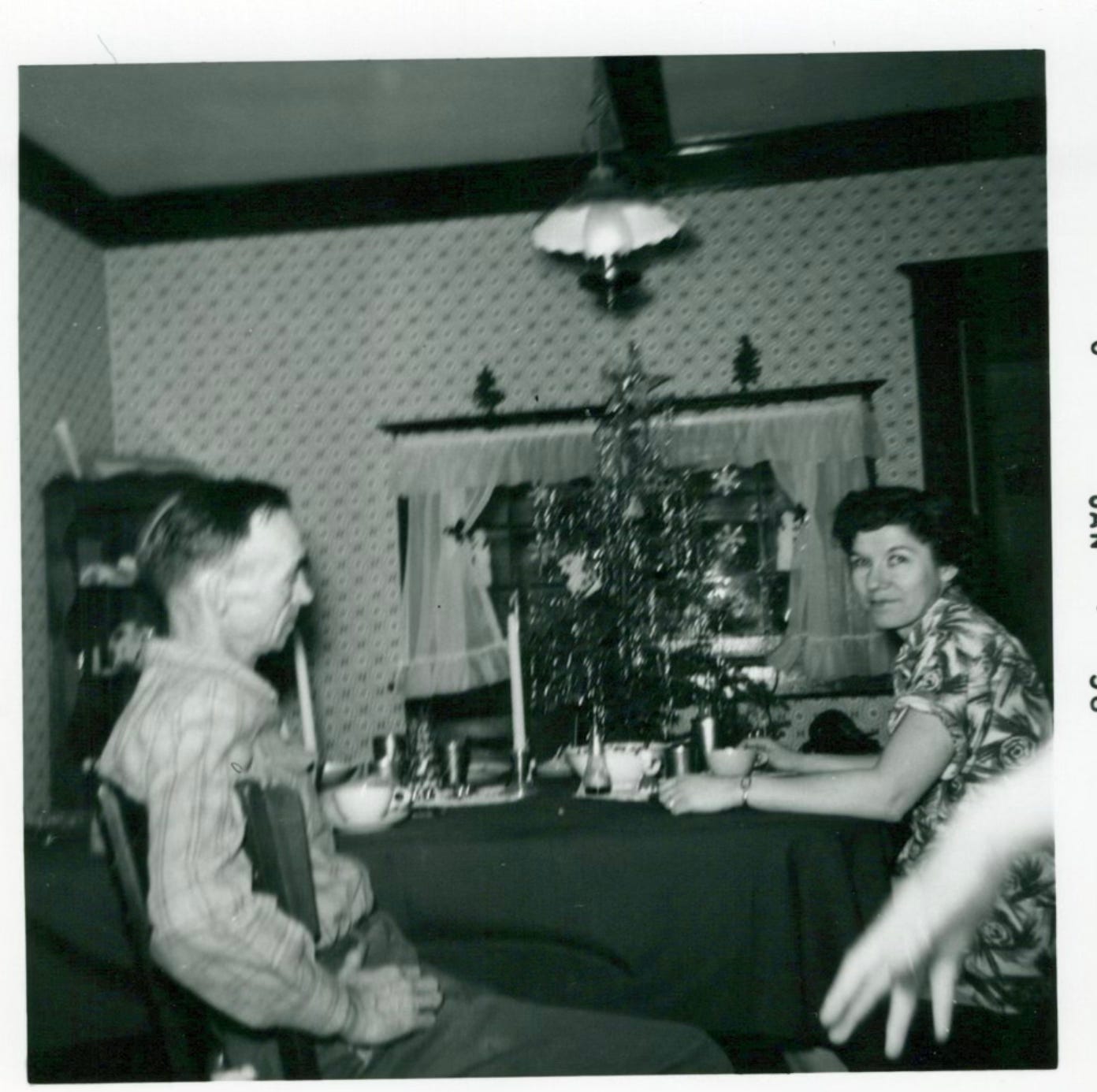
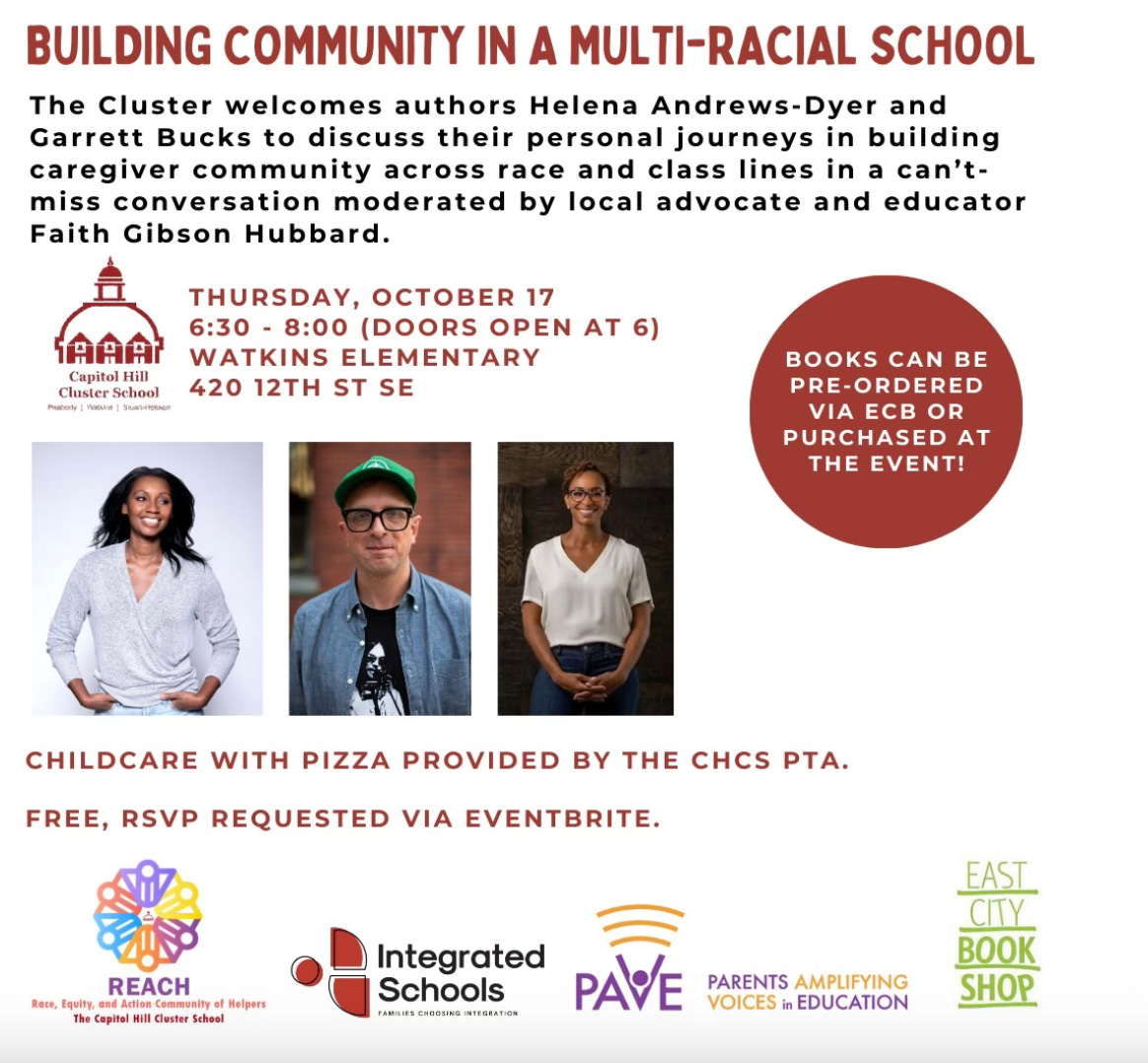
I think one manifestation of privilege is fervently supporting a religious or political belief/policy/position until it significantly affects our personal security, success, or well-being and then -- well, we change our hearts. It is difficult for me to deal with the cognitive dissonance between my desires for justice and my fears for myself and my family, perhaps particularly because I can't figure out how much I need to survive the future? It is a seductive delusion to believe that there can be certainty but it is a particular problem for those of us raised in a time of pensions and full healthcare benefits after retirement. What am I willing to give up, really give up, to alleviate the suffering of others?
Ffs Garrett maybe now you owe us a goofy top ten list of midwestern snacks. (this is a compliment, mostly?)